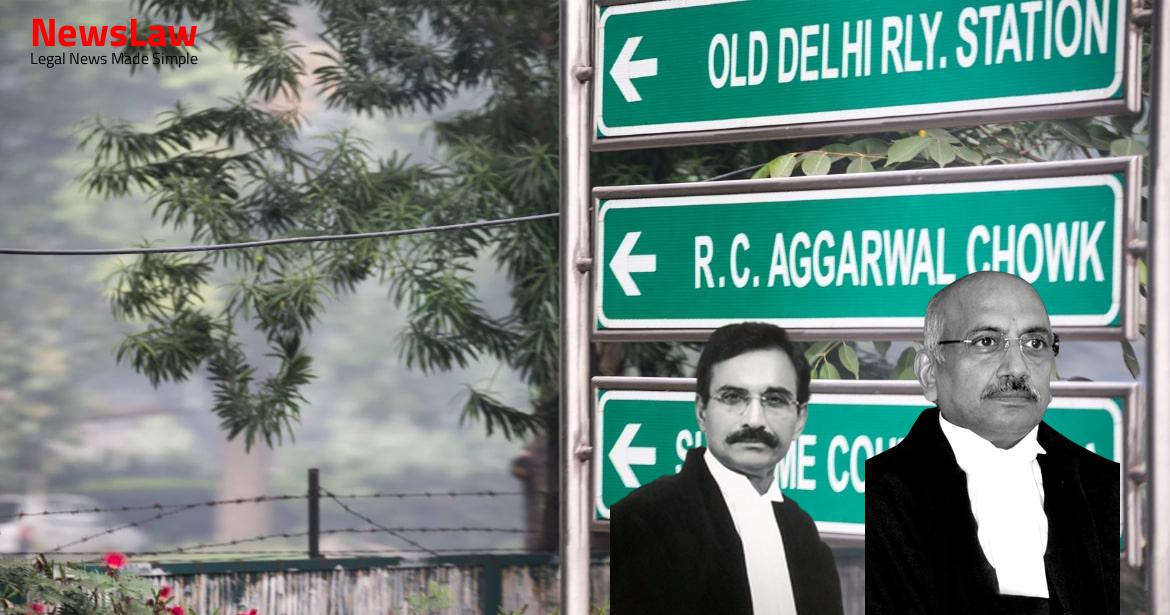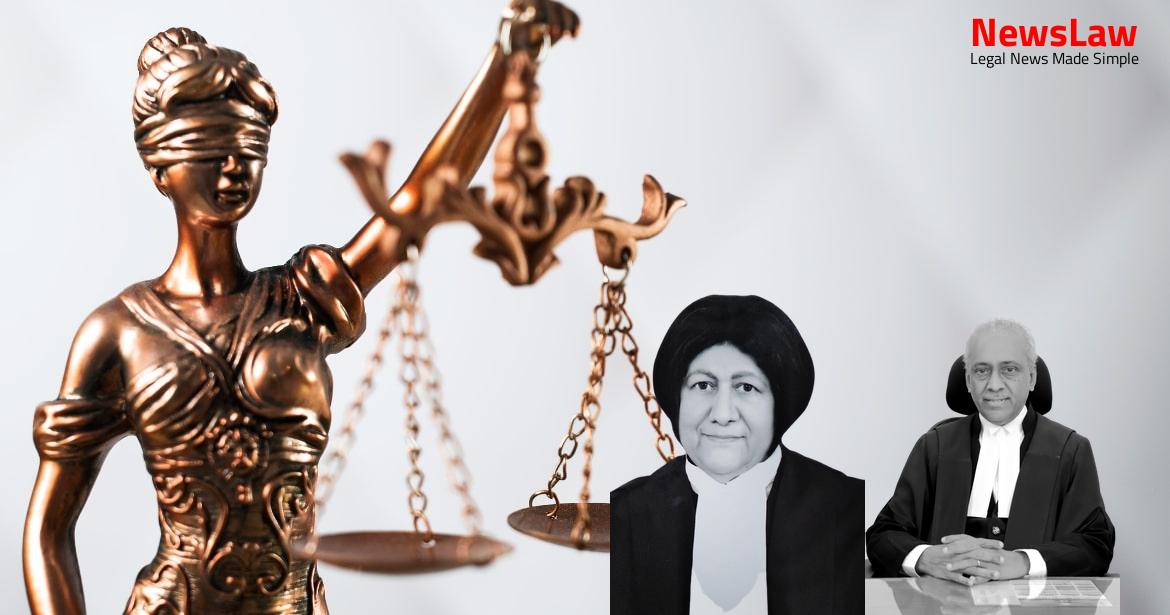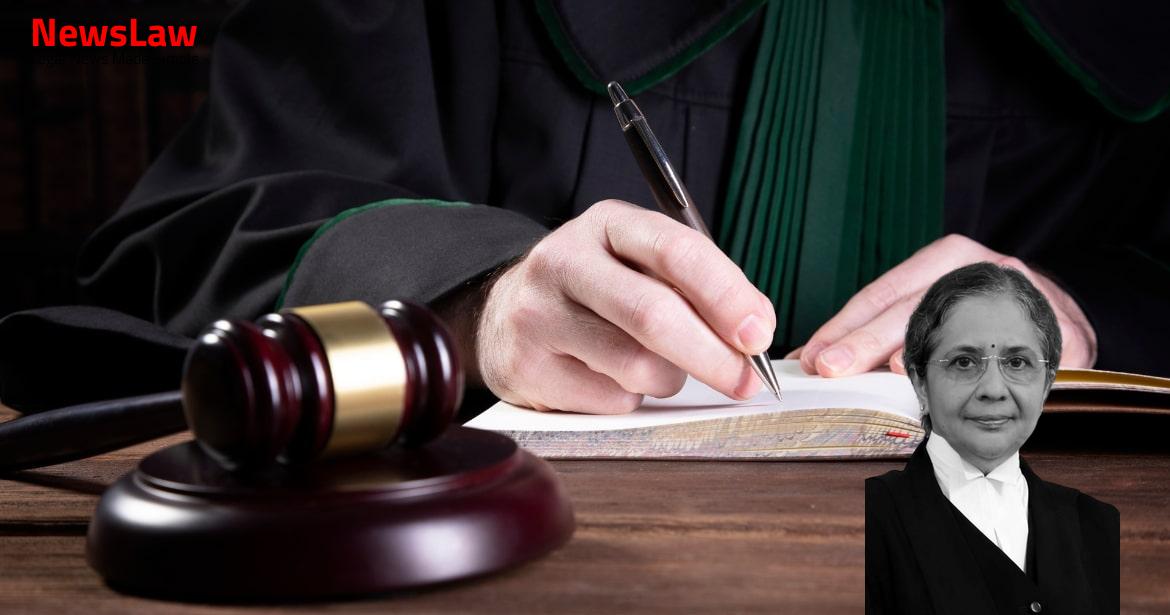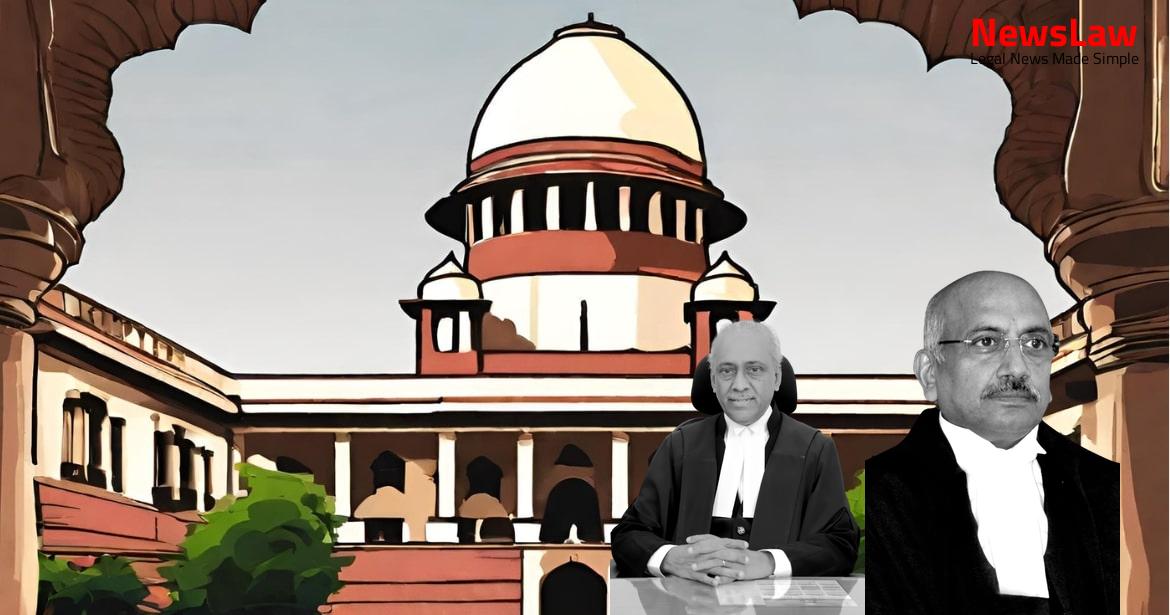In a significant development, the Supreme Court of India delivered a crucial judgment in the case of Bank of India v. Atindra Nath Bhattacharyya. The case revolved around disciplinary proceedings and the imposition of a major penalty. The court’s ruling has far-reaching implications for the legal framework governing such matters, setting a precedent for future cases. Let’s delve into the details of this landmark judgment and its implications on the Indian legal landscape.
Facts
- The appellant granted the respondent an opportunity for a personal hearing, which was challenged by the respondent.
- Despite multiple communications from the appellant, the respondent did not appear for the personal hearing.
- The appellant’s appeal was dismissed by the Appellate Authority on April 19, 2005.
- The respondent, Atindra Nath Bhattacharyya, was charge sheeted on December 28, 1999, for 16 charges related to irregularities during his tenure as Chief Manager of Baghbazar Branch.
- An inquiry was conducted, and the Appointing Authority imposed the punishment of removal on the respondent on January 24, 2003, due to significant irregularities found.
- The respondent continued to challenge the proceedings despite calls for personal hearings.
- Intra-court appeal of the respondent was dismissed on April 7, 2017.
- Appellant directed to grant another opportunity of hearing to the respondent.
- Respondent filed a writ petition before the High Court at Calcutta challenging the order of punishment.
- Single Bench of the High Court set aside the order of punishment on January 13, 2016.
- The set aside was due to the delinquent not being given any opportunity to show cause regarding the nature and quantum of punishment.
- The order of the Division Bench of the High Court dated April 7, 2017, is being challenged in this appeal.
Also Read: Property Inheritance Dispute: The Legacy of Chhotabhai Ashabhai Patel
Arguments
- The appellant’s counsel relied on the Bank of India v. Apurba Kumar Saha judgment to argue that a Bank employee who fails to defend himself in disciplinary proceedings cannot later claim denial of a reasonable opportunity to defend himself.
- Reference was made to the State Bank of India & Ors. v. Mohammad Badruddin case where it was held that a delinquent must be heard before imposition of a major penalty.
- Contrary to the above, the respondent’s counsel cited the State Bank of India & Ors. v. Ranjit Kumar Chakraborty & Anr. case where a removal order was set aside due to lack of hearing before imposing a major penalty.
- The respondent was granted multiple opportunities on March 24, 2016, April 7, 2016, and April 22, 2016 but did not avail them.
- The Division Bench granted one last opportunity to the respondent based on the reasoning of ‘justice demands.’
- The appellant’s counsel cited a judgment (State Bank of India & Ors. v. B.R. Saini) where a similar situation was explained.
- The direction by the Division Bench to grant another opportunity was deemed untenable in the current case by the learned Single Bench.
- The Single Bench set aside the order of punishment and penalty, instructing the employer to serve a notice before imposing the penalty.
Also Read: Lt. Col. Om Dutt Sharma vs. Ministry of Defence: OROP Entitlement for Army Postal Service Personnel
Analysis
- The Bank cannot be directed to give another opportunity for hearing after the respondent failed to avail the initial opportunity granted.
- Allegations of financial irregularities against the respondent are substantial and serious, running into crores of rupees under multiple heads.
- The order of removal based on grave financial irregularities cannot be considered unjust.
- Delays in the hearing process cannot be rewarded and multiple opportunities for hearing cannot be granted indefinitely in the name of justice.
- The directions in Paragraph 18 of the Division Bench’s judgment are not deemed sustainable and are therefore set aside.
- The respondent forfeited the chance to present their version to the Competent Authority when requested to do so.
- Of the charges brought forward, the inquiry officer found ten charges proved and six charges not proven.
- The judgment of the learned Single Bench was found fault with the order of removal.
- The judgment in the case of Mohammad Badruddin supports the position taken by the Bank.
- The Bank did not file an appeal against the judgment of the learned Single Bench.
- The correctness of the judgment of the learned Single Bench was not examined in the present appeal.
Also Read: Financial Capacity and Specific Performance: A Landmark Judgment by the Supreme Court Of India
Decision
- The present appeal is allowed.
- The decision of the lower court is overturned.
- The appellant’s arguments were found to be valid.
Case Title: STATE BANK OF INDIA Vs. ATINDRA NATH BHATACHARYYA
Case Number: C.A. No.-005842-005842 / 2019



